The island of Hvar is a natural paradise, famous for its lavender, olives, wine, sunshine and temperate. The idyllic pictures it not completely rosy however, due to various environmental practices. TCN sat down with Eco Hvar founder Vivian Grisogono on January 15, 2016 to find out more on the devastating effects of pesticides.
You’ve been campaigning for years about the environment on Hvar. Why is that necessary?
When I first started coming to Hvar many years ago, I was blissfully unaware of how badly some people were treating the land. Like many, I believed that everything was cultivated according to organic principles, without pesticides and chemical fertilizers. That’s what people told me.
How did you find out that things were not as they seemed?
Visiting at different times of the year, I noticed people in the fields with suspicious-looking canisters on their backs, spraying the ground. When I questioned them, they would say that it wasn’t really poison, or perhaps it was, but it was safe and mild, they only used a little, and anyway they couldn’t manage the weeds without using it.
Why did they think it was safe?
They believed what the manufacturers said. ‘Safe enough to drink’ was one claim made for the world’s most widely used herbicide, Roundup (Cidokor in Croatian); totally selective; doesn’t get into groundwater; dissipates quickly; etc etc. All good marketing, and very persuasive, if you choose not to question it.
Why did you not accept that it was safe?
In my physiotherapy practice in the UK, I treated farmers and gardeners, among many others. They had a striking incidence of illnesses, which you wouldn’t expect from a supposedly healthy outdoor lifestyle. Medical specialists were suspecting links between pesticides, artificial fertilizers and illnesses like myalgic encephalomyelitis (ME) and leukaemia way back in the 1980s.
Isn’t there proof that pesticides in common use are safe?
No, not at all. Poisons cannot be tested on humans for ethical reasons. Modern pesticides have been approved largely on the basis of animal tests. Various types of animal were force-fed doses of the poisons to see how much would harm them, and from that it was calculated how much would have to be ingested by humans in order to cause health problems. When animals died during the tests, most often the deaths were put down to ‘other causes’ rather than the poison. These are unsound, unscientific principles.
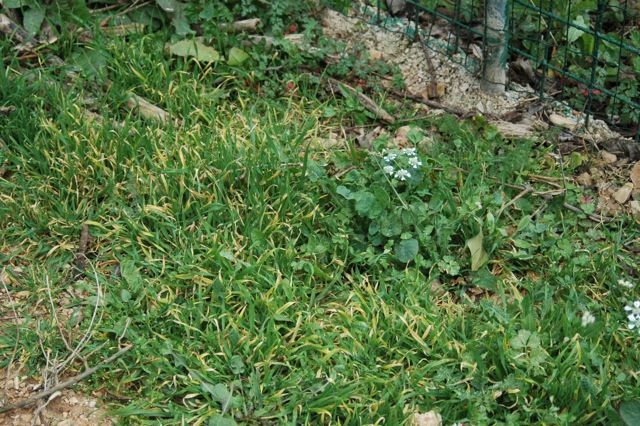
What’s the proof that pesticides cause harm?
Over the years, scientists have amassed ever-increasing evidence that chemical pesticides harm human health and the environment. Roundup kills weeds by acting on a particular system in plants, which, it was thought, didn’t exist in humans. Now we know that this shikimic acid pathway does exist in humans: it regulates bacteria in the gut, which is a vital function for the immune system. Damaging this mechanism can be a factor in all manner of diseases, from cancers to gluten intolerance.
In the environment, glyphosate-based herbicides like Roundup cause untold damage in soil and water, also harm to insects, birds and wildlife habitats.
Why do you feel so strongly about pesticides?
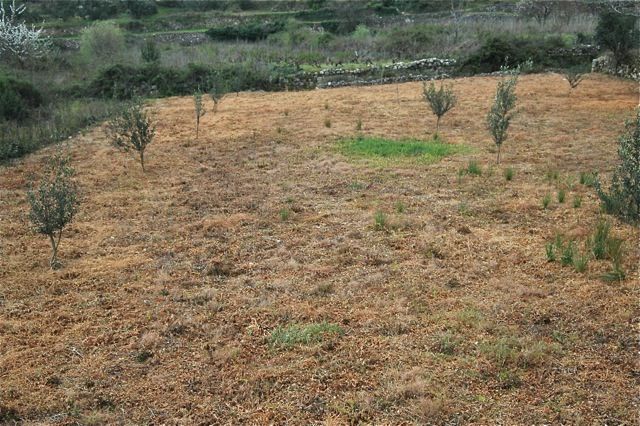
I have been studying the use of pesticides and their effects for many years for professional and personal reasons. When I bought a field for olives about ten years ago, I set about cultivating it organically. In March 2014, a workman sprayed Roundup (Cidokor) liberally over the neighbouring field, boasting later how he used more than the recommended concentration dosage, and assuring me that it would not harm my dogs or my field. He was wrong on all counts. The action of the herbicide is undermined if too much is used: glyphosate-resistant weeds were sprouting within weeks of the spraying. Collateral damage is of course greater. Two of my dogs fell ill with leishmaniasis as a direct result of the spraying. My almond tree shrivelled, teaching me how glyphosate-based herbicides cause damage to trees through wind-drift. The contamination of my field is still evident nearly two years after the spraying. Eight years of hard work ruined.
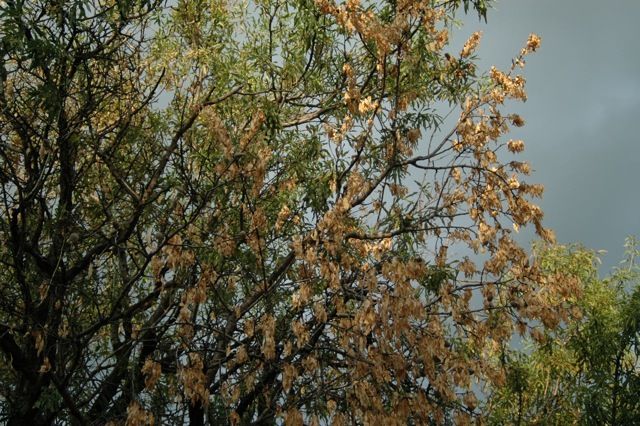
What effect is pesticide use having on the island?
As a resident on Hvar, I grieve for the damage being done to the island and its people. The Mediterranean diet depends on healthy vegetables. Healthy unpolluted soil is essential for producing healthy food, whether wild greens, asparagus, artichokes, cabbages, potatoes, carrots, tomatoes, grapes, olives, oranges or lemons, all of which are staples in the Dalmatian diet. Pesticides have no part to play in cultivating healthy foodstuffs.
Wildlife is suffering. Bats used to be abundant in my village some years ago, but in 2015 I hardly saw one. Butterflies flourish only in Hvar’s wilder, uncultivated places. Birds of all kinds are noticeably declining in numbers. Beekeepers have also reported problems. This is not only because of agricultural pesticides. Part of the problem is the routine spraying against mosquitoes organized by the local councils each summer. Such spraying does not solve the problem of mosquitoes, and may even increase it. The substances used are extremely harmful to humans, as well as all insects, wanted or unwanted.
Why do Hvar’s islanders continue to use pesticides?
There is ignorance of the many dangers; a naive belief in the manufacturers’ claims; a belief that pesticides are the easy option; an unwillingness to look into the possible alternatives.
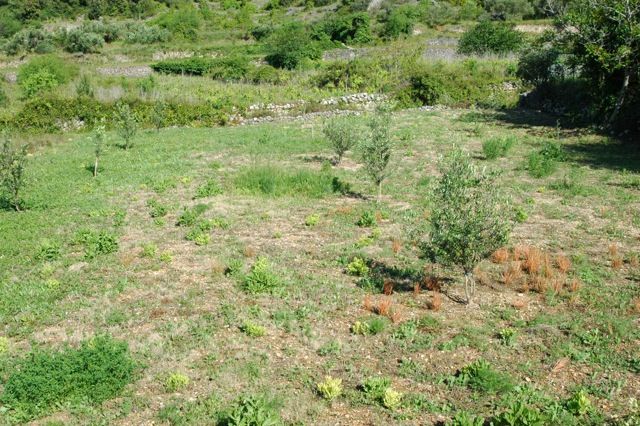
There are recently introduced EU rules, under which pesticide users have to go through training and invest in special protective clothing. In a way, this has made matters worse, as it convinces people that pesticides can be used in a safe manner. The truth is they can never be safe.
There is also ignorance of local regulations, such as they are. Jelsa Council passed a ruling some years ago that herbicides should not be used on public places. Yet in 2014 Council employees sprayed a glyphosate-based herbicide on the paths in the local park, without adequate warning to park users. It is fairly common for local people to spray roadsides adjoining their properties.
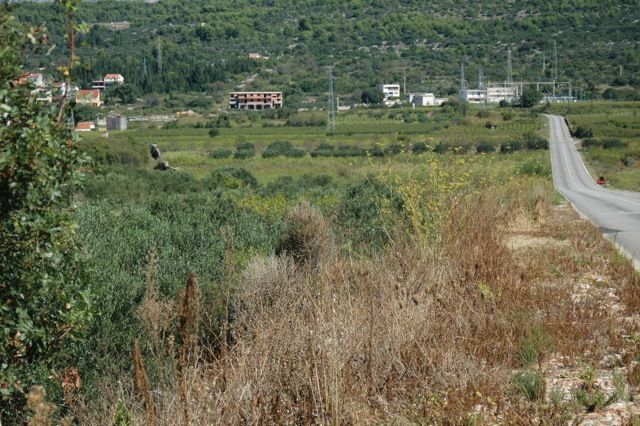
Are there people on the island who do not use pesticides?
Yes, there are many men and women who are committed to cultivating their plants and crops organically, some biodynamically. I’m glad to say that their numbers are gradually increasing, and more of them are seeking organic certification. Consumer choice and protection are improving.
How do organic farmers cope without pesticides?
There are several organically certified products available for controlling unwanted plants and insects, and protecting against disease in different crops. Strimming can be enough to keep weeds down, keeping sheep is even more efficient. Using selected plants alongside the main crop is a traditional method: for instance, clover around olive trees helps fix nutritious nitrogen in the soil; beans alongside vines keep weeds away while providing a staple food.
What are your hopes for the future?
I would like people to become more aware of the need to look after the environment properly. This spring, Eco Hvar will be organizing a seminar about chemical pesticides and the alternatives to them. I hope, at the very least, that it will help people to think more carefully about how they treat the land. It would be good if the local councils gave full support, including financial, to Hvar’s few environmental charities, and made environmental issues a priority.
Our long-term goal is for organic farming to be the norm over the whole island. This would set an example for the rest of Dalmatia and Croatia. It would have a significant effect on people’s health.
Hvar’s thousands of annual visitors expect organic, healthy food, and a clean environment. They should not be cheated or disappointed.
To learn more about environmental issues on Hvar, visit the Eco Hvar website.








